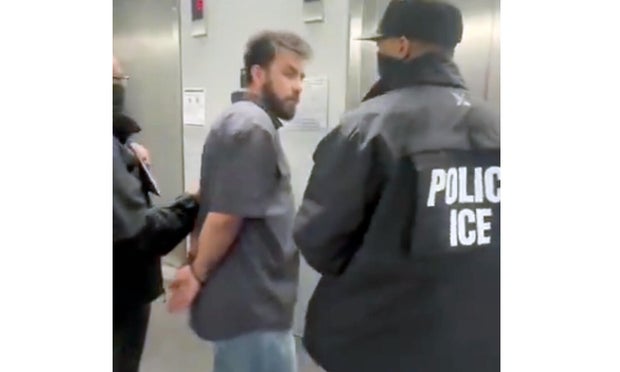An Afghan national, Sayed Naser, who previously collaborated with U.S. military forces in Afghanistan, was recently detained by officers from U.S. Immigration and Customs Enforcement (ICE) in San Diego. Naser’s apprehension occurred last week immediately following his compulsory immigration hearing at a federal courthouse in downtown San Diego on Wednesday, June 11.
Sayed Naser, during his tenure from 2015 to 2018, served as a civilian interpreter for the U.S. troops in Afghanistan. Further extending his commitment, he and his brothers also operated a logistics company that provided critical anti-mining support to American forces. His responsibilities and the trust placed in his company underscore the pivotal role he played in aiding U.S. military operations during their presence in Afghanistan.
However, the U.S. military’s withdrawal from Afghanistan in August 2021 marked a turn for the worse for individuals like Naser. The withdrawal has exposed former allies of the U.S. to significant dangers, including targeted attacks by the Taliban. In a tragic sequence of events in 2023, Naser’s family became direct targets: his brother was killed, and his father was abducted during a family wedding. These incidents precipitated his immediate flight from Afghanistan and led him to seek asylum elsewhere due to the severe threats against his life and his family’s safety. He stated in his asylum declaration that he can never return to Afghanistan, given the Taliban’s view of him and others in his situation as traitors or spies due to their affiliations with foreign forces.
Initially fleeing to Brazil where he received a humanitarian visa, Naser undertook a perilous journey spanning over 6,000 miles, including traversing the Darién Gap, before reaching Mexico. In 2024, leveraging the then-named CBP One app, he secured an appointment with U.S. Customs and Border Protection and was granted lawful parole into the United States.
As part of the asylum process, Naser was required to attend a hearing in San Diego. According to his lawyer, Brian McGoldrick, Naser was compliant with all legal demands and expectations. However, upon attending his hearing, a Department of Homeland Security (DHS) lawyer proclaimed his case “improvidently issued” without providing a clear explanation for this determination. This term, vague and unclarified, often serves as a blanket justification used by ICE to detain individuals even if they have been compliant with all procedural requirements, as lamented by Shawn VanDiver, executive director of #AfghanEvac, an advocacy group for U.S. wartime allies.
ICE’s decision to detain Naser sparked controversy, particularly given his history of direct support to the U.S. military. This has raised significant concerns about the treatment of Afghan allies who risk their lives in support of U.S. missions abroad. Naser is currently held at the Otay Mesa Detention Center, and his detention could potentially extend up to three months as his asylum proceedings continue. If his asylum application is denied, he faces imminent deportation, although it remains unclear to which country he would be deported.
This incident has surfaced amidst an increasing trend of ICE arrests at courthouses, noted by recent reports and sparking widespread protests in major cities like Los Angeles. Such arrests, often made public, generate fear and uncertainty among immigrant communities who observe these enforcement actions taking place even as individuals comply with mandated legal processes.
Furthermore, recent policy shifts under the Trump administration have signaled a hardening stance against migrants, exemplified by actions such as terminating Temporary Protected Status (TPS) for Afghans and instituting a travel ban on nationals from multiple countries citing security concerns. These measures have significantly impacted many, including over 100,000 Afghan wartime allies who now face compounded risks of deportation and lack access to essential protections.
Afghanistan continues to reel under Taliban rule with rampant human rights abuses, making it perilous for individuals like Naser to return. Advocates and legal representatives argue that the U.S. has a moral obligation to protect its allies who have provided crucial services and support during military operations.
This incident raises important questions about U.S. immigration policies and the ethical considerations surrounding the treatment of individuals who have risked everything in support of U.S. objectives abroad. As these discussions unfold, they highlight the ongoing challenges faced by migrants seeking safety and stability in the face of bureaucratic hurdles and changing policy landscapes.









